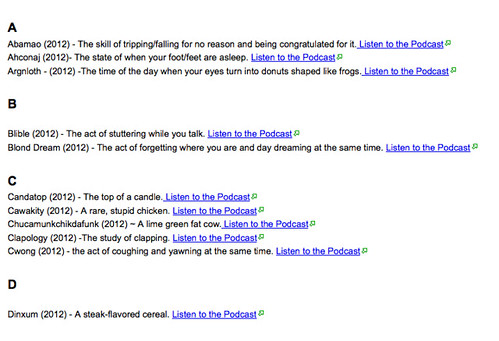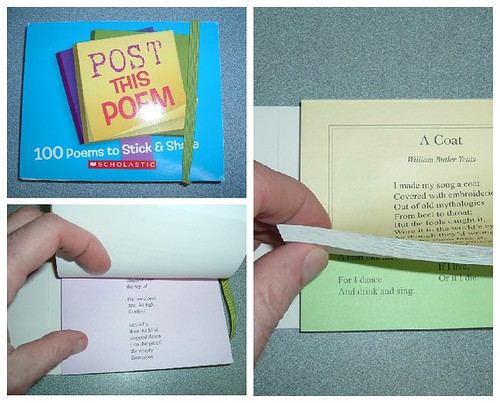I have a student, a boy, who began the year refusing to write anything. He wasn’t rude. He was just resistant. At most, he would quickly jot down a few sentences and that was it. He was done. He didn’t care about writing nor did he see any value in his words. I learned from his mother that this had been the case for some time. While he is an avid reader, his writing was always a struggle.
Over the course of the year, though, I have been watching him slowly emerge from that shell. It began around December, with our video gaming unit. Here was something he is interested in, and his game as well as the writing components that were part of it were exemplary in many ways. He was pushing himself to write, and to write well, and to connect his writing to something meaningful: the video game he was designing for publication.
I admit. I was worried that once we moved past our video game design unit, he’s revert back into the one-sentence writer. Happily, that has not been the case. And now, he is writing outside of school (unheard of, according to his mother), and he is in the midst of a novel that is clearly inspired by his devouring of The Hunger Games series, The Lightning Thief series, and a host of other book he is now cruising through. It’s as if some light suddenly went off in his head and he is full-in.
Look at this section from his novel, which he has been sharing with me in periodic bursts. The story involves two siblings, who are to become apprentices in a cultural system that is defined by the elements.
James instantly felt pity for his sister. Amber, a dark brown haired girl at 5’11 and her brother, Brutus, were the two that found James and Abby in the woods and nursed them back to health. Even after they were old enough to care for themselves, Amber and Brutus still watched the twins every move, always fusing about how they could be hurt and keeping everything a secret from them. James couldn’t stand them; the only good part is that they’re friends with each other and Jack, meaning that Abby and Tim will train together a lot.
Amber materializes from the crowd and extends her hand, which Abby reluctantly shakes. After Amber gets in the same position as Jack, Boulder wraps things up. “James, please step
forward.”
James immediately does on queue.
“In honor of his extraordinary find…”
“Oh no!” James thought.
“…And his continuing part in your life, your mentor will be Brutus!” Boulder shouts.
My role here has become a little less teacher, and a little more editor with him. I’ve been writing him letters about his story, hoping to encourage him to keep going. Here is a bit of what I wrote to him last week.
Dear xxx,
Thank you for sharing your story with me. I was excited to read it and I want to encourage you to keep working on your ideas.
Here are some things I noticed:
- I liked the main characters, and the ways you are hinting at their history and backgrounds. Good novelists do that: they introduce a character, but hint at further character developments to come. I wondered about James and Abby’s history (you give some info – but I wanted to know more about the fate of their parents)
- I can see you have a larger vision for this story, and for other possible offshoot stories already developing. The use of the elements as your story metaphor makes a lot of sense, since it opens up the doors to other stories from the other areas. You may want to keep weaving in hints of other stories unfolding outside of this particular book as a way to set the stage for future stories.
- I could see all of the influences of what you have been reading: Hunger Games, etc. That’s good. As you continue, use what you have read as a template, but then keep an eye on moving beyond the structure of those stories. That’s how you can make your own book an original.
- I like how you are already developing some tension among the characters, and the situation of the tribes.
- I was struck by the introduction of the bamboo stick, and wondered about the power of that magic, and how it might become part of the plot.
—-
Again, I loved the story and hope to read more. I am also honored that you would share your story in progress. I hope some of the writing we have done this year has helped you see yourself as a writer, and that as a reader, you are gathering ideas, strategies, suggestions for your own writing.
I’d like to offer up a piece of advice. You may run into a point with your story when you don’t know where to go with it. Don’t give up! Step back from the story, read it with fresh eyes and don’t be afraid to take a chance with a plot direction. Keep on writing, and write because you have a story to tell (if it is a good story, as yours is, then people will want to read it.)
Sincerely,
Mr. Hodgson
I can see the excitement in his eyes and voice as he talks about his story and where he sees it going. I’m a bit sad that our time together is nearing an end, and I’ll be encouraging him to email me updates, and I will find time to respond. I can’t say that I did much to help this shift happen, other than provide the scaffolding and opportunities for him to write this year in a variety of ways. The gaming unit caught his attention. Who knew that would happen? Not I. But I am thankful it did.
He is a writer.
Peace (in the sharing),
Kevin









